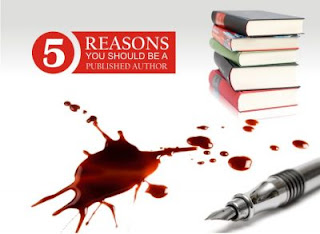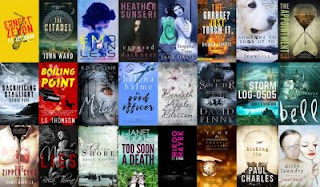In this post, you will get ten book marketing tips to help increase your book sales as an independent author.
Self-publishing is not a new phenomenon anymore as it has now become an integral part of the publishing landscape.
However, there is one component that remains a stumbling block – getting your book to sell.
Book marketing is tough, hard work, time-consuming and can even be dispiriting. If that’s not enough, it can also be expensive.
We all hear about the ones who ‘got lucky’ such as Amanda Hocking and E L James, but these are rarities. However in saying that, they didn’t achieve success without a lot of hard work either.
Self-published authors have no choice but to face up to the onerous task of promoting themselves.
However, traditional publishers are now cutting back on their book marketing budgets, so more and more of their authors are having to use social media to ‘flog’ their wares as well. It’s becoming a level playing field.
So what can you do to give your book a chance? Here are ten ideas.
1. Write a great book.
It may sound silly, but it’s the very first ingredient in getting a book to sell. Knowing what readers will like isn’t easy, so don’t expect that just because you’ve written a book, it will sell.
In my case, my favourite book is my very worst seller, so what would I know?
2. Social media is a must.
If no one knows about you or your book, how can they buy your book? Social networking is a ‘one thing leads to another’ tool, so by continually expanding your contacts you help build your author brand. Another good reason to exploit social media is that it is free.
3. Don’t try to sell – try to market your book.
Do not use social media to sell books. Selling is not marketing. ‘Buy my book’, ‘Check out my book’ and ‘My book is free today’ messages are 100% guaranteed to make you look like a spammer.
Could you imagine Neil Gaiman or Dan Brown sending messages like this?
Talk about yourself, other people, post intelligent comments and interact and get known.
Marketing is about ‘brand recognition’, so your objective is to become known as an author. When you are successful at this, your books will then hopefully sell themselves.
4. Use every contact point you can find.
Set up accounts on all social media sites related to books. Goodreads, AuthorDen, Shelfari or any other you find. Also use sites such as Stumbleupon, Pinterest, Google+ and Facebook. All of these will add to your search engine listings and get your name ‘out there’.
Set up a Google Alert for your name so you can be notified whenever your name is listed on a new search engine entry. Remember that you are marketing yourself as an author, not direct selling books.
So remember to write an intelligent and informative bio or description for these sites. If you are an author, show people why when they first read your bio.
5. You must have a blog.
While a website is a useful central resource for information about an author and their books, a blog is much more dynamic and should be the conduit through which all book marketing is driven.
Having new informative blog posts circulated through a number of social networks is a great way to expand your reach and attract new readers. Also, regular blog posts will be indexed by Google and Bing and help bring new potential readers to your blog.
6. Giving away ebooks is cheap marketing.
Free books should never be seen as giving away money. They should be viewed as an introduction to your writing and your name to new readers, and the more, the better.
Even if an author has only one title, a free book offer can help build a base of readers for the second and third books.
I use Kindle’s KDP Select program, and when I offer any of my titles for free, I’m pleased if 500 readers download the book. I’m even happier when 5,000 do. And thrilled if 20,000 do.
The more, the better. There are 6 billion people in the world, so you have plenty of market left.
7. You should budget for paid promotion.
Pay for some exposure, but within reason and your budget. There are many options available to buy advertising or promotion, and high traffic sites can boost exposure for your name and title.
I’ve used a number of sites, and while some have been more successful than others, it’s a long-term game of building your author brand.
8. Keep your cool.
Always be positive and never enter into conflict on any platform on the Internet.
Arguing, criticising and being obnoxious are sure-fire routes to failure. Never ‘flare’ on the Internet as comments made in a temper will last forever and tarnish your reputation. Ignore bad reviews, nasty comments and trolls. Rise above their level, always.
9. Keep writing.
Write another and much better book. Quite simply, the more books you write, the better you get, and the more chance you have of making book sales.
10. Stay positive.
Don’t check your book sales hourly. It’s depressing. Do it once a week, or even better once a month. You might get a surprise.
Marketing a book takes time and patience, so stay positive and think about what little things you can do each day that will help find new potential readers.
Source: Just Publishing Advice








